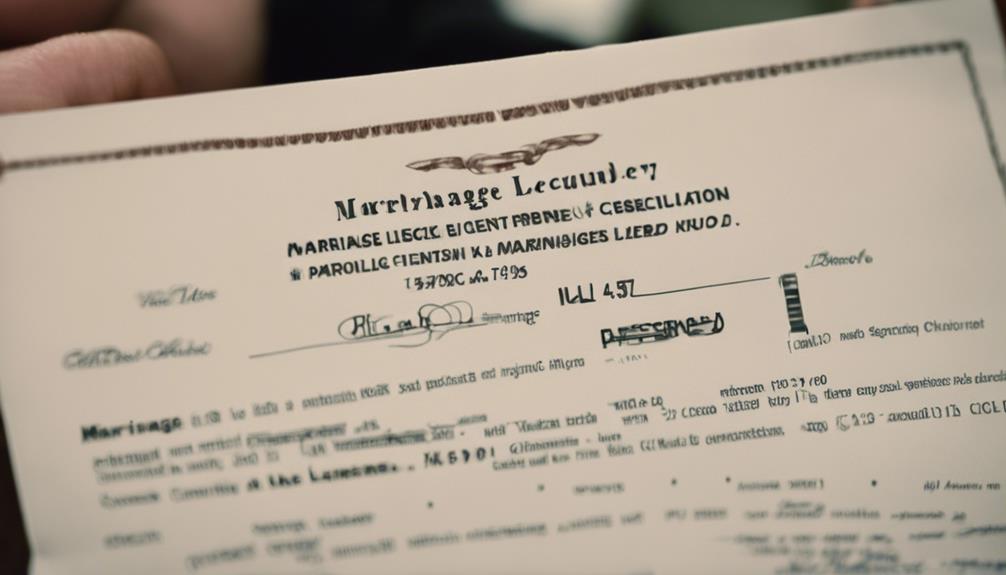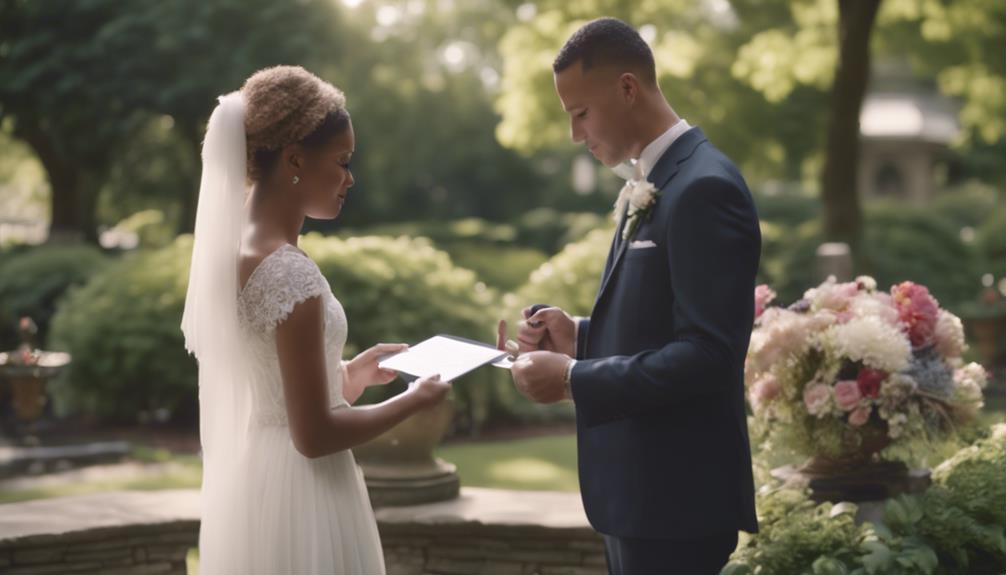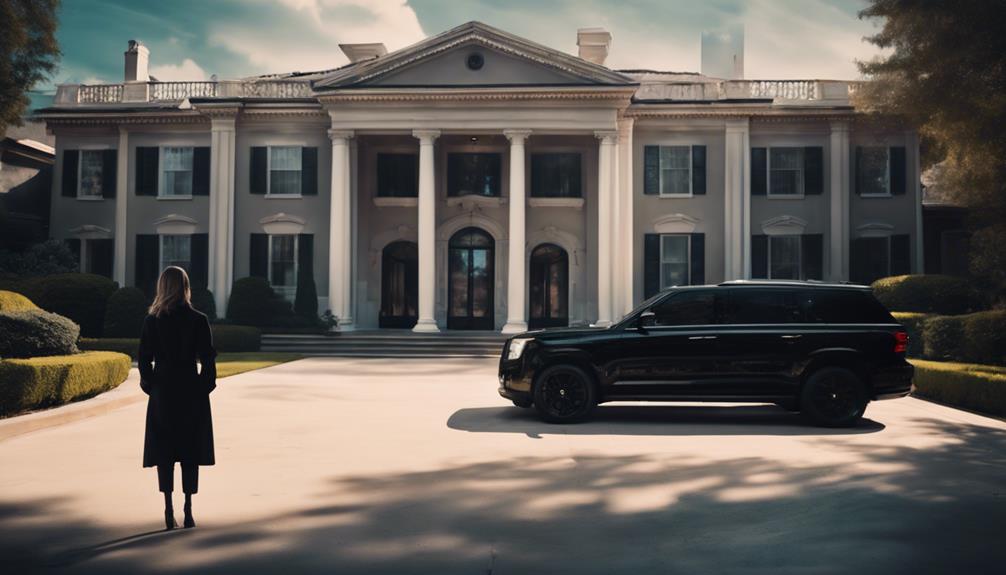Common law marriage no longer exists in New Jersey, as it was abolished in 1939. This change has had a substantial impact on the legal rights and responsibilities of unmarried couples in the state. Understanding the current legal landscape for unmarried partners is essential for ensuring clarity and protection in relationships.
Key Takeaways
- Evolution: Common law marriage existed pre-1939 in NJ.
- Abolishment: NJ abolished common law marriage in 1939.
- Legal Status: Unmarried couples have different legal rights.
- Marriage License: Required for legal marriage in NJ.
- Cohabitation Agreements: Offer legal clarity and protection.
Historical Context of Common Law Marriage
The evolution of common law marriage in New Jersey reflects a historical shift in legal recognition of informal unions. Prior to 1939, common law marriages were recognized in the state, granting couples legal equivalence to traditional marriages.
However, since the abolishment of common law marriage in 1939, pre-existing common law marriages have been the only ones acknowledged. It's essential for unmarried couples in New Jersey to seek legal advice to understand their rights, as they face a different legal landscape than married couples.
While common law marriage is no longer an option, obtaining a marriage license and having a formal ceremony remain the standard requirements for legal marriage in the state.
Marriage License Requirements in NJ

How do couples in New Jersey go about obtaining a marriage license?
To obtain a marriage license in New Jersey, couples must follow a specific process:
- Application: Couples need to fill out a joint application at the local registrar's office.
- Documentation: Required documentation includes identification and proof of eligibility.
- Fees: There are costs associated with obtaining a marriage license.
- Waiting Period: There's a period of waiting between obtaining the license and the ceremony.
Following these steps is essential for couples to legally marry in New Jersey.
Financial Disputes and Court Resolution

Couples facing financial disputes in New Jersey may seek resolution through the court system based on their individual circumstances and provided evidence. Courts consider factors such as shared finances, property division, and contributions when resolving these disputes.
Unmarried partners encounter a different legal landscape compared to married couples, making solid evidence of financial interdependence essential for a favorable outcome. It's important for individuals to seek appropriate legal representation to safeguard their financial interests effectively.
Cohabitation Agreements in New Jersey

For unmarried partners in New Jersey, establishing cohabitation agreements provides legal clarity and protection. These agreements outline rights and responsibilities for couples living together without the legal recognition of marriage.
Here are four key points to contemplate regarding cohabitation agreements in New Jersey:
- Legal Protection: Cohabitation agreements cover financial matters, property division, inheritance rights, and decision-making.
- Clarity: They provide clear guidelines in the absence of common law marriage, ensuring both partners understand their obligations.
- Enforceability: Courts may uphold these agreements if they meet fairness and voluntariness standards.
- Peace of Mind: Cohabitation agreements offer security and peace of mind by establishing expectations and safeguards for both partners.
Legal Rights for Married Couples

Establishing legal rights for married couples in New Jersey includes a range of benefits and protections not available to unmarried partners. Married couples in the state have access to spousal support and equitable distribution in the event of a divorce, ensuring financial stability post-marriage.
Additionally, married couples enjoy inheritance rights and tax breaks, providing economic advantages. Legal marriage grants decision-making authority and estate inheritance, offering spouses the ability to make critical choices for each other and their shared assets.
To validate a marriage in New Jersey, specific elements such as obtaining a marriage license and having a formal ceremony are necessary.
Ultimately, being legally married in New Jersey affords couples various rights and protections that unmarried partners don't automatically possess.
Conclusion
To sum up, traversing the legal terrain of common law marriage in New Jersey can be like setting off on a journey without a map. Just as a compass directs travelers through unfamiliar territories, seeking legal counsel and grasping the nuances of marriage laws can assist unmarried couples in maneuvering the intricacies of their relationship.
By fulfilling the essential requirements to acquire a marriage license, establish financial arrangements, and safeguard their legal rights, couples can plot a path towards a secure and acknowledged union.










